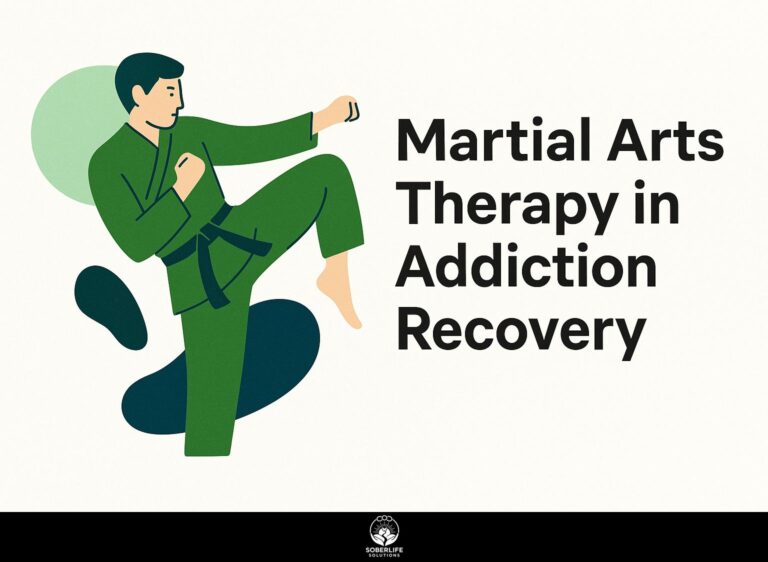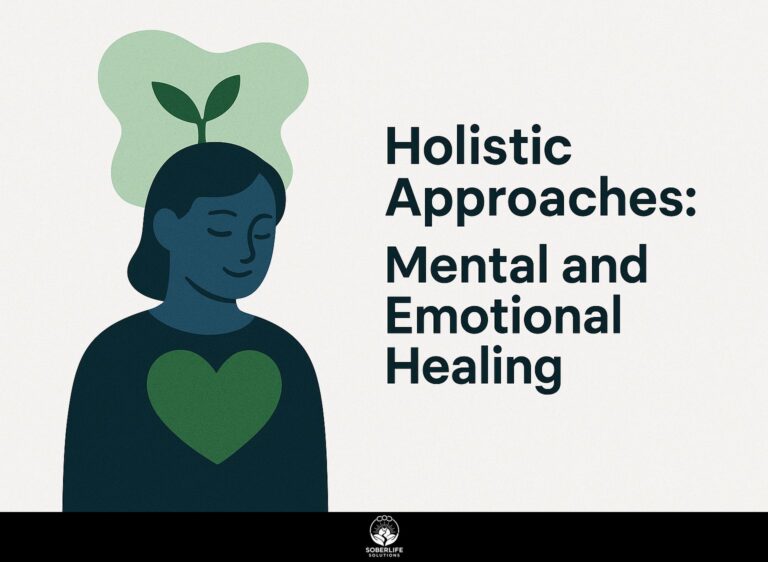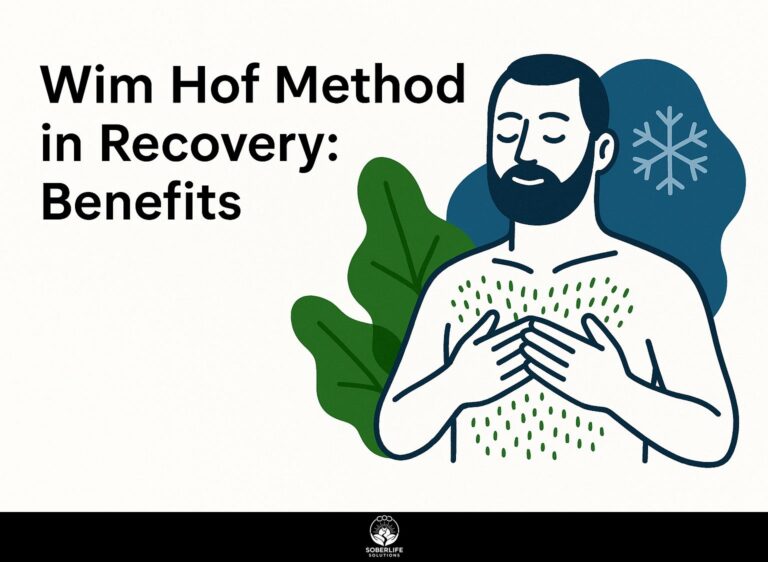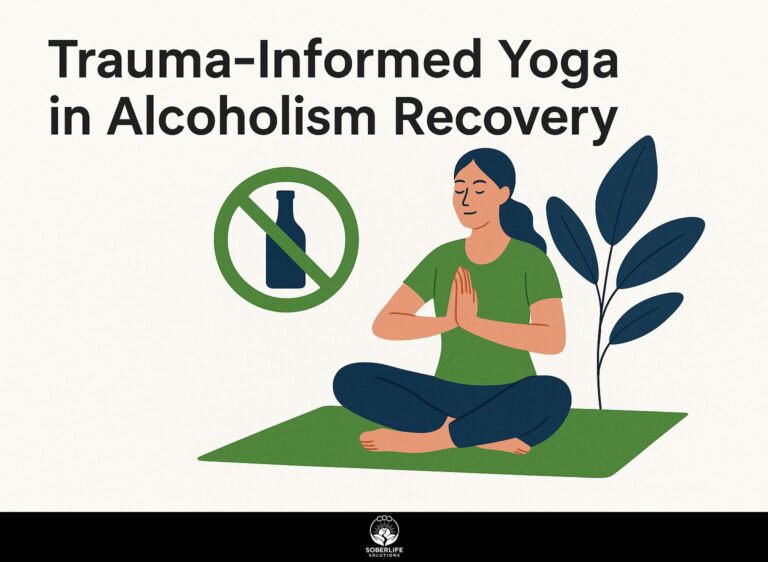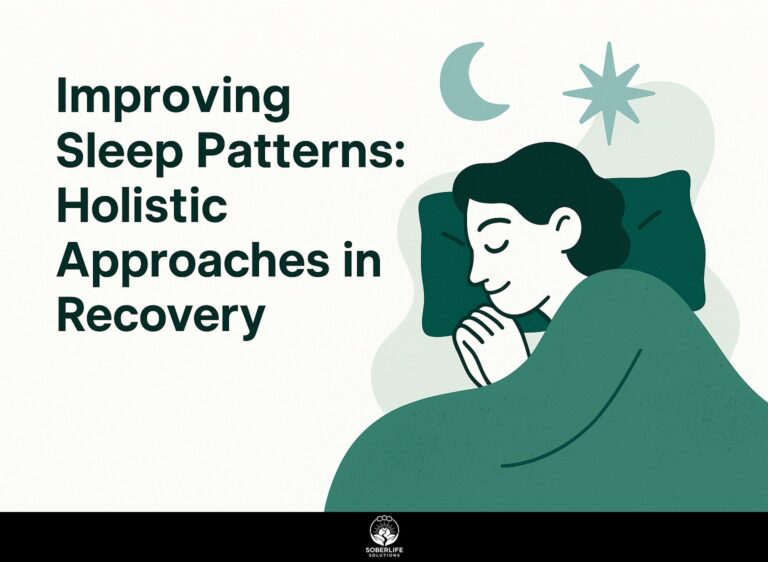Life Skills in Addiction Recovery: Planning and Development
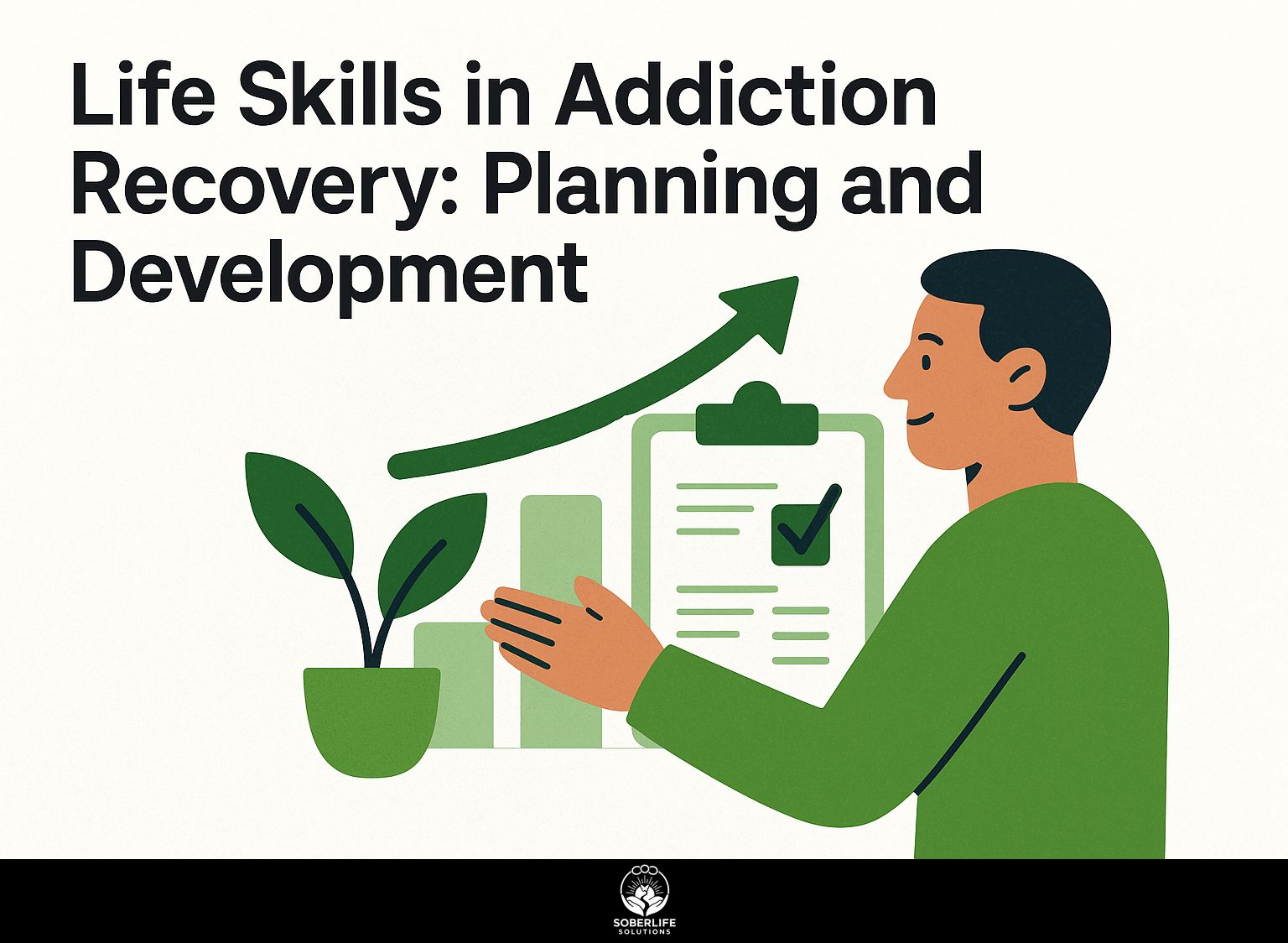
Learning life skills is important for overcoming addiction, leading to long-term change and better mental health. When people deal with substance use and look for effective addiction treatment, a mental health professional plays an important role. This article looks at important life skills needed for recovery, giving helpful ideas for planning and development that support self-care and improve overall well-being. Learn how these skills can change the path to recovery!
Key Takeaways:
Importance of Life Skills
Learning important life skills like controlling emotions and communicating with others is essential. These skills strengthen relationships with people and support personal accountability during recovery.
Research indicates that individuals who participate in life skills training have a significantly higher success rate in recovery, with studies showing up to a 20% reduction in relapse rates. For context, an in-depth analysis by ResearchGate examines how life skills training contributes to the psychological well-being of individuals recovering from drug abuse.
For instance, programs focusing on effective communication can improve social interactions, while emotional regulation training helps in managing stress.
Methods like SMART recovery, which emphasize self-control and gaining knowledge about recovery, can help build these skills.
These efforts help people become stronger and create a network that is important for long-term healing.
Assessment of Current Skills
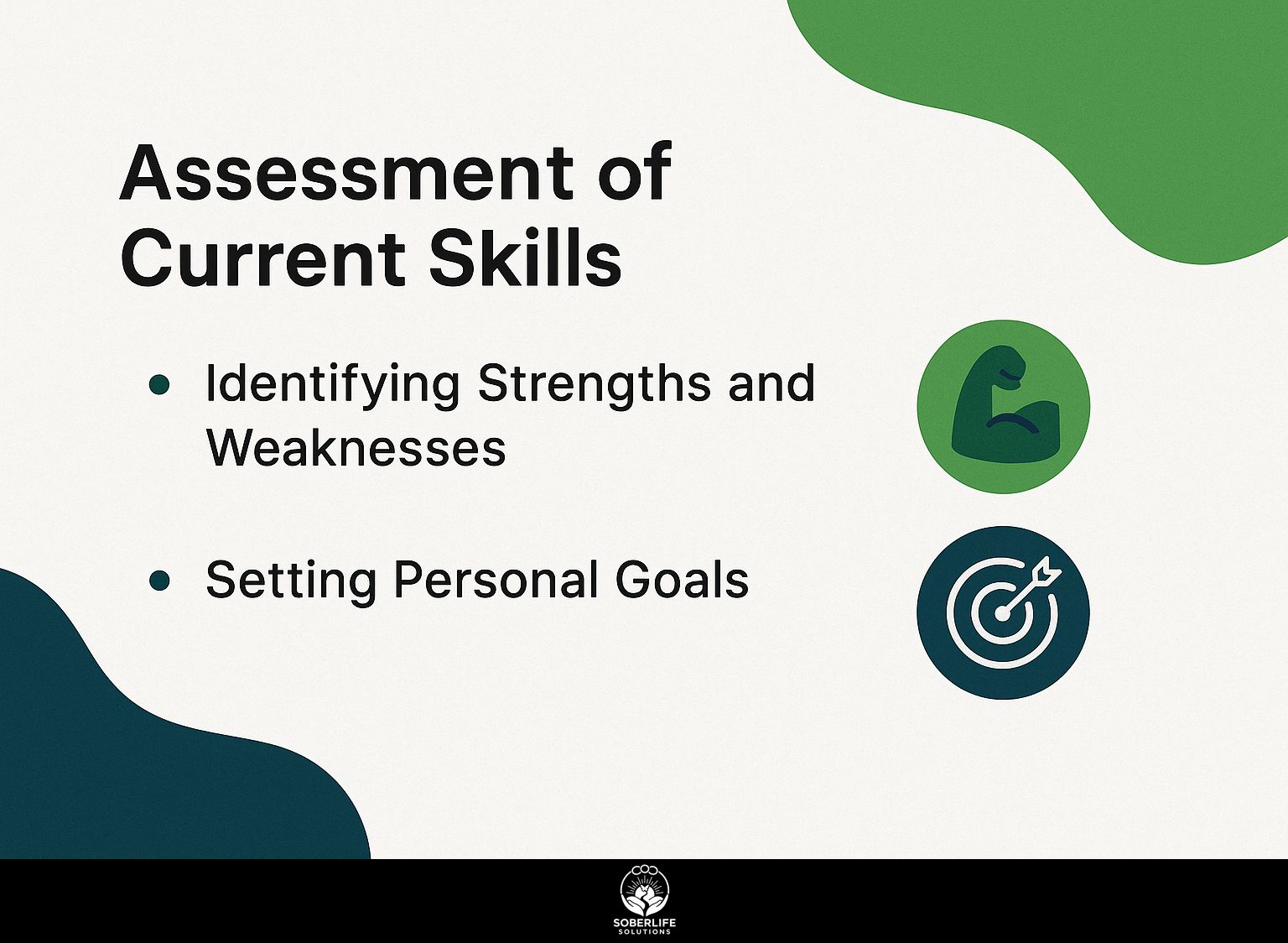
Checking your current skills is an important step in getting back on track. It helps people see what they are good at and what they need to improve. Conducting a personal SWOT analysis, as suggested by Forbes, can be a vital tool in assessing those skills and identifying areas for growth.
Identifying Strengths and Weaknesses
Individuals can identify their strengths and weaknesses through reflective exercises and feedback from mental health professionals.
A useful way to do this is by performing a SWOT analysis. Begin by listing your strengths, such as skills, experience, or personal qualities.
Next, identify things that might hold you back, like postponing work or feeling nervous about public speaking.
Then, look for chances that match your abilities-maybe a workshop or online course that can improve your skills.
Consider potential threats, such as industry changes or competition, that could impact your progress.
This organized method offers clear guidance and practical information for personal growth.
Setting Personal Goals
Setting personal goals is essential for maintaining motivation and focus throughout the recovery process.
To set SMART goals, start by selecting specific areas to improve, like enhancing communication skills or managing stress.
For instance, you might set a goal like ‘attend a public speaking class once a week for two months.’ Track your attendance and improvement to measure your progress. Make it achievable by considering your current commitments, relevant by aligning it with your recovery objectives, and time-bound by setting a clear end date.
Therapy sessions can be very helpful in this process by offering direction and support, helping you develop these goals and remain dedicated.
Core Life Skills for Recovery
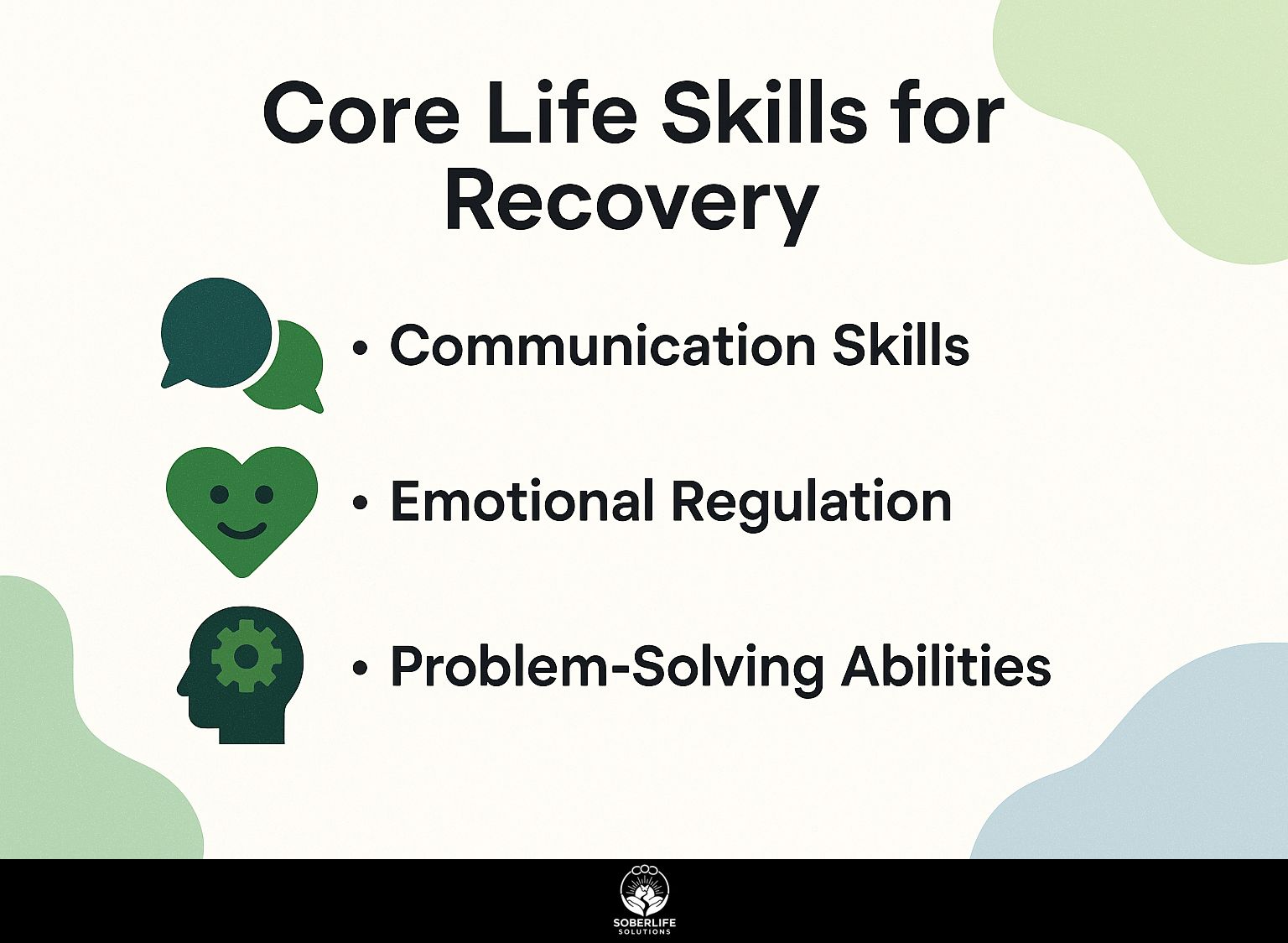
Basic life skills like talking effectively, managing emotions, and solving problems are essential for dealing with the difficulties of addiction recovery. Developing these skills can significantly enhance one’s ability to cope with triggers, a common challenge faced during recovery. Learn more about managing triggers effectively to support your journey.
Communication Skills
Good communication, like being clear and really listening, is important for forming helpful relationships during recovery.
To improve these skills, try practical exercises such as acting out scenarios. In a group therapy setting, participants can take turns practicing assertive statements or empathic listening.
Using tools like Nonviolent Communication helps people communicate better by showing them how to share their needs politely. Regularly making time for these activities can help in learning and increase confidence, which results in better communication and more reliable support systems with others.
Emotional Regulation
Developing emotional regulation skills can mitigate emotional distress and reduce the likelihood of relapse during the recovery process.
One effective technique is mindfulness meditation, which focuses on present-moment awareness. According to the Mayo Clinic, mindfulness exercises have been shown to reduce stress and enhance emotional regulation.
Apps like Headspace and Calm provide guided sessions specifically for managing emotions. Cognitive-behavioral strategies can help identify and reframe negative thought patterns.
Writing in a journal for a few minutes each day to think about your feelings can increase your self-awareness.
By using these methods, people can become stronger and handle emotional challenges more effectively, helping with ongoing recovery.
Problem-Solving Abilities
Having strong problem-solving skills aids individuals recovering from addiction in handling everyday difficulties and making good choices.
People can learn these skills by following an organized plan. Begin by clearly defining the specific problem, such as managing cravings or dealing with stressful triggers.
Next, brainstorm potential solutions-like attending support groups or engaging in mindfulness practices. After listing options, evaluate each based on feasibility, efficacy, and personal relevance.
Writing in a journal can lower anxiety, and group therapy can provide strong support. This method strengthens your ability to cope and helps you make wise choices in difficult situations.
Developing a Life Skills Curriculum
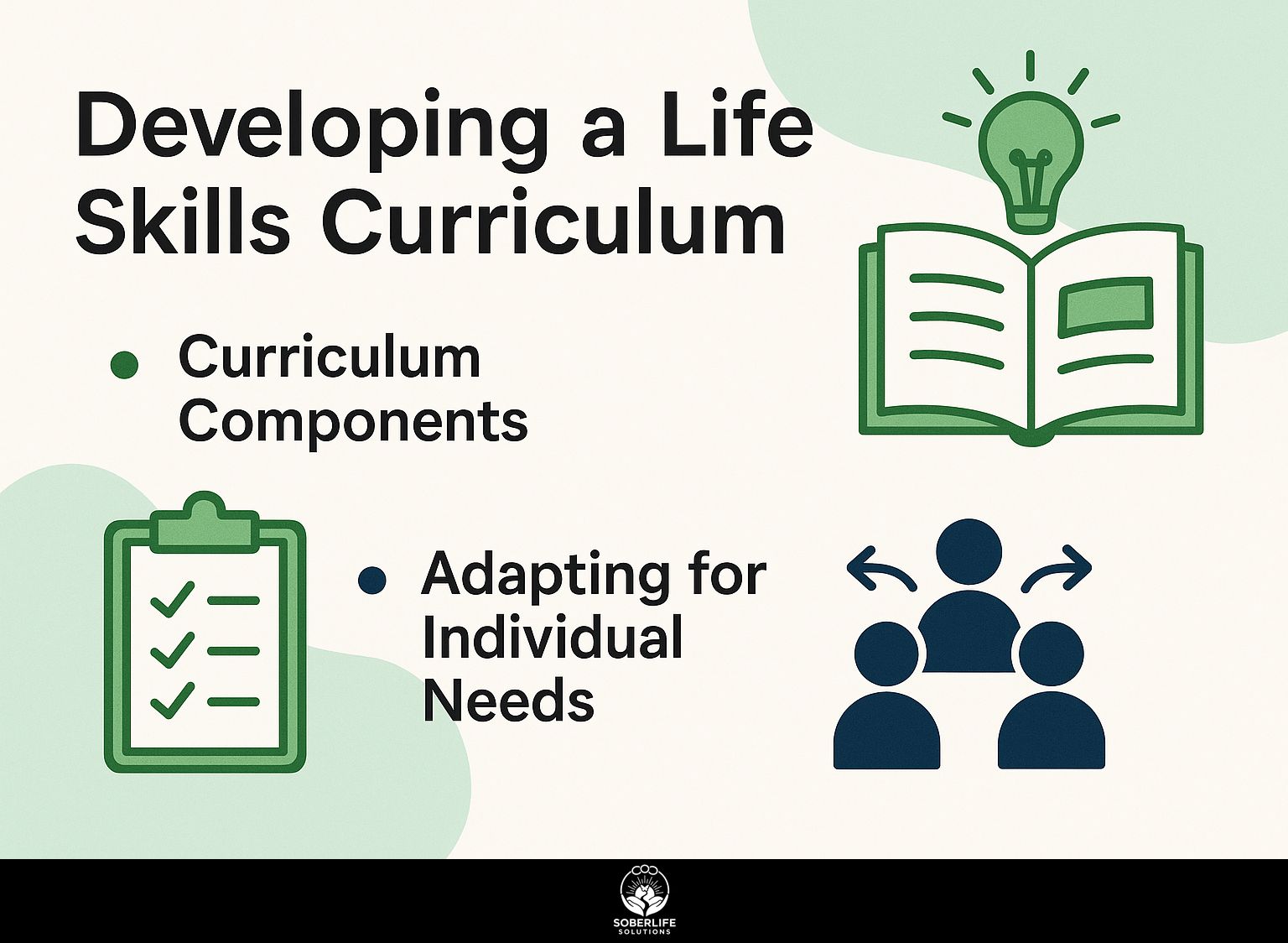
It’s necessary to have a clear plan for teaching everyday skills to build the abilities needed for recovery. Worth exploring: How to Improve Quality of Life During Alcoholism Recovery to understand how these skills contribute to a better recovery journey.
Curriculum Components
Key components of an effective life skills curriculum should encompass self-care activities, emotional regulation, and coping strategies.
To build a full life skills program, include helpful parts like self-care practices, such as daily journaling to increase awareness, and activities like yoga to lower stress.
Emotional regulation can be addressed through role-playing techniques, helping participants identify triggers and apply calming techniques.
For coping strategies, use resources like SAMHSA’s toolkits that provide organized activities to help with problem-solving and resilience.
Tailor these modules to your audience’s needs, ensuring they remain engaging and accessible.
Adapting for Individual Needs
Changing the life skills curriculum to meet each person’s needs is important for increasing participation and success in recovery.
To customize the curriculum, start by assessing each individual’s strengths and challenges through surveys or one-on-one interviews. A young adult might need help with preparing for work, while a veteran might need help with adjusting to civilian life.
Next, use different teaching methods-such as role-playing, interactive workshops, or digital tools like Kahoot! for quizzes-to cater to varying learning styles.
Programs that work well often show flexibility. For example, a community center changed its session times after getting feedback, which led to 30% more participants being happy.
Implementation Strategies
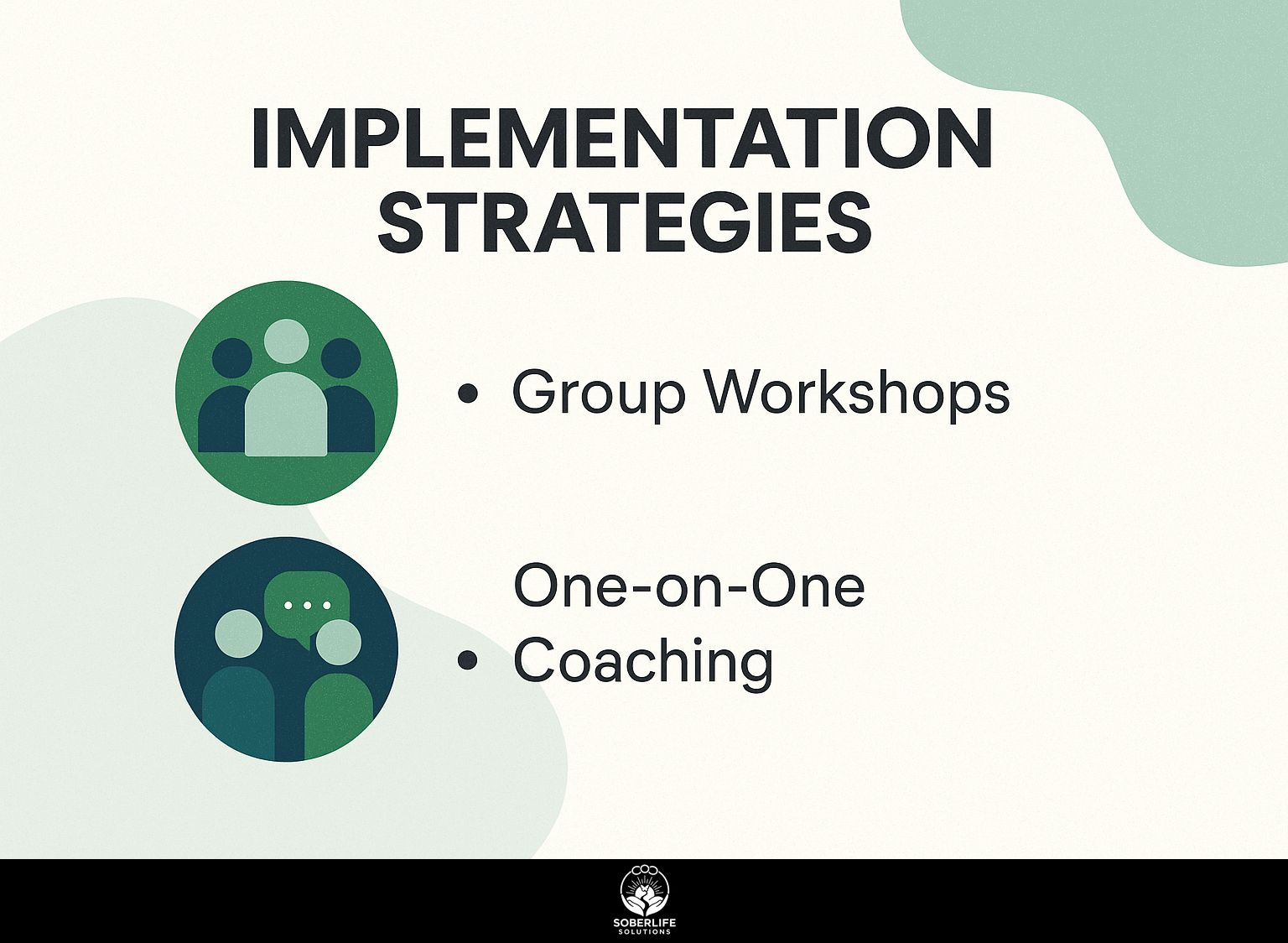
Successful methods for teaching life skills involve both group sessions and individual coaching to address different ways people learn. For those interested in exploring diverse techniques, understanding the credentials and techniques used by alcohol counselors can offer valuable insights into effective recovery strategies.
Group Workshops
Group workshops can build a sense of togetherness and offer support from peers, improving the learning of life skills in a group setting.
To organize effective group workshops, consider topics like financial literacy, stress management, or effective communication.
Platforms such as Eventbrite can help you manage registration and promote the event.
To make learning more engaging, use activities such as role-playing, group talks, and skill-sharing sessions.
Tools like Zoom can facilitate virtual workshops, allowing broader participation while offering features like breakout rooms for small group interaction.
Involving participants with polls or Q&A sessions during workshops makes the learning process more interactive and fun.
One-on-One Coaching
Personal coaching gives customized help and accountability, greatly improving the learning of important life skills during recovery.
An effective coaching approach involves two key strategies: motivational interviewing and structured goal-setting. Motivational interviewing helps clients think about what drives them and what holds them back, promoting greater self-awareness. For example, using open-ended questions can guide them in articulating their goals.
Setting goals that are clear, measurable, achievable, significant, and time-bound helps you make consistent progress while waiting. To find qualified coaches, directories like Psychology Today and BetterHelp are helpful resources.
These platforms allow you to filter coaches by specialty and approach, ensuring you choose someone aligned with your recovery needs.
Measuring Progress and Outcomes
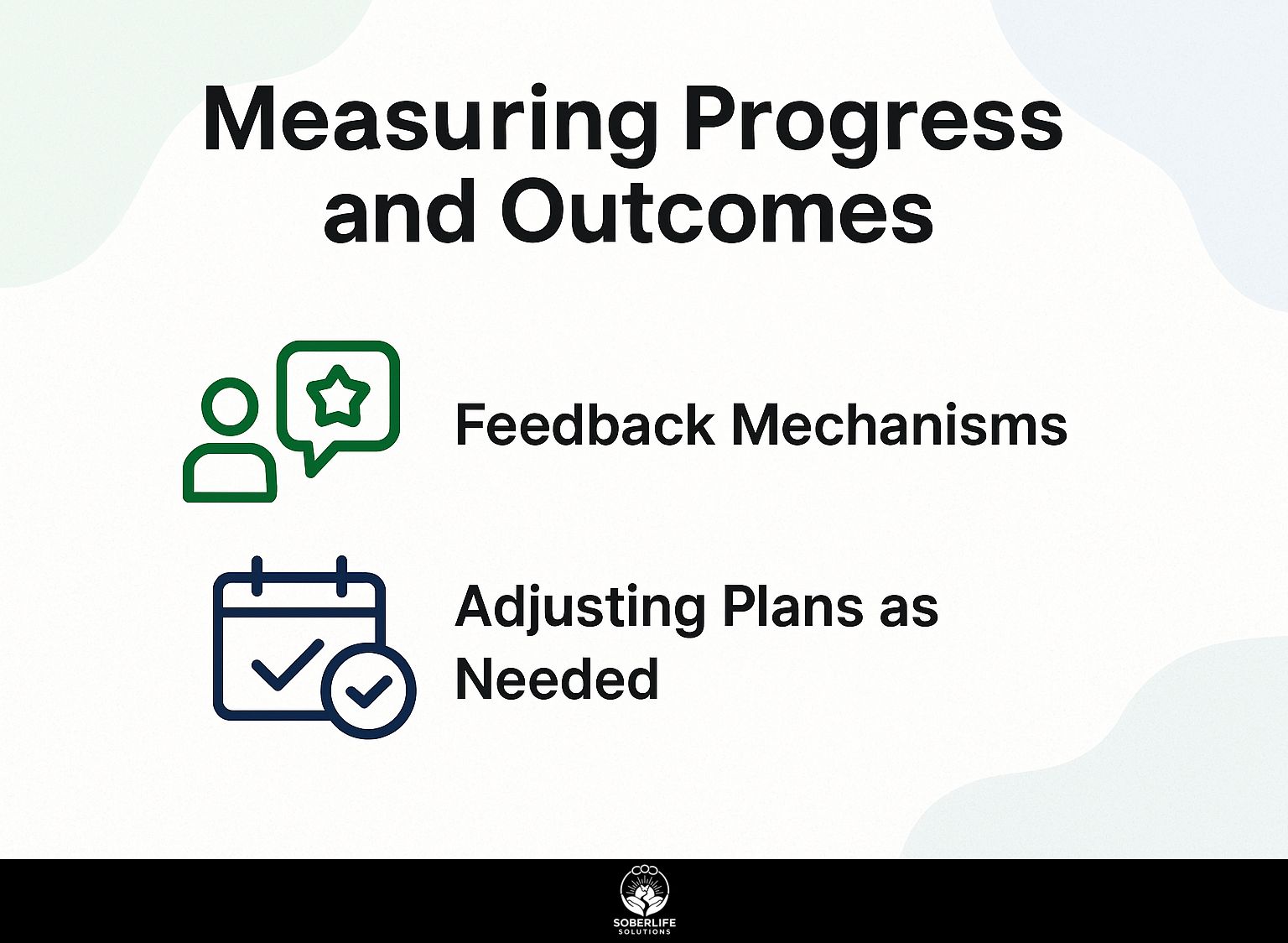
Tracking progress and results is key to judging how well life skills training works in addiction recovery. Setting realistic goals can greatly aid in this process, allowing individuals to measure their success against achievable benchmarks. Learn more about setting realistic goals in recovery to enhance your tracking methods.
Feedback Mechanisms
Implementing feedback mechanisms enables continuous improvement in the life skills curriculum and its delivery.
To collect useful information, use different ways to get feedback.
- Post-session surveys can quickly capture participants’ immediate reactions and suggestions.
- Focus groups encourage open talks, letting you learn detailed opinions about the curriculum.
- Personal interviews give specific feedback and can show information that group discussions may miss.
Once collected, analyze the feedback using qualitative methods, such as thematic analysis, to identify recurring themes and specific areas for improvement.
This organized method makes sure that your curriculum changes to effectively meet the needs of learners.
Adjusting Plans as Needed
Regularly changing training plans based on participant feedback keeps the curriculum useful and effective.
To set up a system for regular review, start by collecting both descriptive and numerical feedback from participants after each training session.
Key indicators to monitor include engagement levels, knowledge retention rates, and participant satisfaction scores. For example, if feedback consistently highlights difficulty with a particular skill, consider integrating additional resources or exercises targeting that area.
The curriculum will be checked every six months to look at the results and make changes if necessary, ensuring the skills taught match what participants need as times change.
Frequently Asked Questions
What are life skills and why are they important in addiction recovery?
Life skills are important daily abilities that help people handle and deal with everyday tasks and problems. In addiction recovery, learning practical skills is key to staying sober and building a satisfying and successful life.
What are some key life skills to focus on in addiction recovery planning and development?
Effective communication, time management, problem-solving, stress management, and self-care are all important life skills to prioritize in addiction recovery planning and development.
How can developing life skills aid in relapse prevention?
By building a strong foundation of life skills, individuals in addiction recovery can better handle triggers and difficult situations, reducing the risk of relapse. These skills can also help individuals cope with stress and maintain a healthy lifestyle.
What are some resources to help with developing life skills in addiction recovery?
There are various resources available, such as therapy and support groups, to help individuals develop life skills in addiction recovery. Self-help books and online courses can offer useful tools and advice for building certain life skills.
How can setting goals and creating a plan aid in the development of life skills in addiction recovery?
Setting goals and creating a plan can provide direction and motivation in developing life skills. By identifying specific areas to focus on and creating a roadmap for achieving those skills, individuals can make progress towards a successful recovery.
How can a support system play a role in the development of life skills in addiction recovery?
A support system, including friends, family, or a sponsor, can offer motivation, accountability, and practical help in learning life skills. They can provide helpful feedback and assistance in dealing with difficulties and acknowledging achievements.

